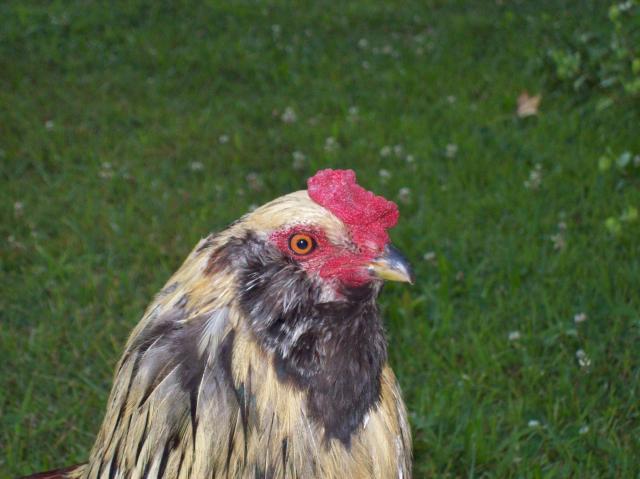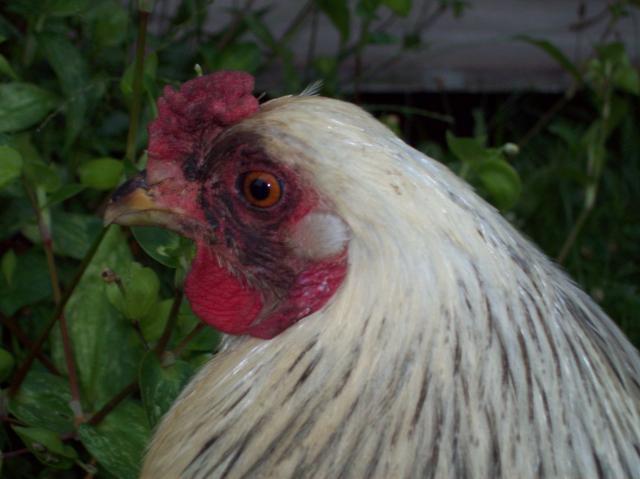Well first off, you'll want to make sure that the dosage of the antibiotic you're giving is correct. What brand, what strength (usually it'll be listed in number of grams of antibiotic per package), and how much are you using.
You must use this as labeled but no less than 7 days. It must be made fresh daily, kept out of light (put tinfoil over the clear part of the waterer helps), to be active.
You will also want to give a PRObiotic (non-medicinal form of living bacteria) to clear up the diarrhea which may be a separate issue or the same. You cannot use yogurt with this medicine. You will want to go either to the feed store and pick up some Probios powder (or paste in a pinch), or the vitamin section of a grocer, druggist, or health food store for acidophilis capsules or tablets.
This is VERY important. Your bird is already showing diarrhea which will dehydrate him. The good gut bacteria that usually keep a bird from having diarrhea are going to be harmed by the antibiotic, so you must give him probiotics daily to try to do damage-control and then every day for a week after treatment, and every other day for a week after that. This will help the good bacteria (lactobacilli) to re-colonize the gut and prevent secondary yeast/fungal infections and worse.
If you weren't treating with meds in the water, I would highly advise a poultry vitamin/electrolyte supplement. however they cannot be mixed. So instead, I recommend that you pick up a poultry vitamin/electrolyte supplement and make a small amount of it (as labeled - just a cup's worth) and use that to wet some of the birds' crumbles to make a damp mash at least once daily for him. Birds who are ill are usually reluctant to eat. However, damp (not wet) mashes are often more tempting to them. You can also put the probiotic in that mash to get him to eat it. Just make a tiny bit. The electrolytes that you use in the mash will help a bit with the diarrhea's dehydration effects. You can even mix a little of the yolk of a boiled egg into it to tempt him to eat.
For his respiratory symptoms, if you don't see them improve greatly within 3 days, then the medicine that you're using is the wrong one. I'd highly recommend picking up Tylan (injectable) and 3 - 3cc syringes (25 gauge needles or around there are fine) if this antibiotic doesn't work. Alternately you could try Sulmet (a liquid for the water) which not only treats a couple of respiratory illnesse but also E. coli infections.
This could be viral (possible) with the diarrhea being from the drainage of the sinuses into the digestive tract (likely) upsetting the good bacteria there. In that case, no antibiotic will work for the disease - but possibly for secondary bacteria infections of the sinuses and digestive tract.
So really it's pretty much guesswork unless you see one of a few symptoms that point out specific diseases.
For example, smell the chicken's drainage. It it's very rank smelling, then it's likely Coryza (treatable with Sulmet). If there is bubbling in the eye, then it could be a mycoplasma like M Gallisepticum or M synoviae (somewhat treatable with Tylan). If there is excess drooling from the mouth and neck twisting, these are symptoms that point towards Pasteurella (treatable with Sulmet)
In the mean time til more clarification (by the bird's symptoms) occurs, do keep those eyes clean daily with warm water. You could use VetRx if you have it to swab the nares, under the eyes, and the hard-palate cleft of the bird to help keep air moving in the sinuses and possibly reduce inflammation and mucus. A bird that can't breathe won't heal.
Basically, I would do this:
make sure you're using the chlortetracycline correctly (dosage, days, etc)
Use probiotics daily - very important
Make a daily wet mash of probiotics, vitamins/electrolytes, crumbles.
Possibly use VetRx to faciliate healing (any variety - say rabbit, etc, will do)
Prepare to get a different antibiotic.
INcidentally, please do isolate that rooster from the other. Do his chores last in the day, the healthy rooster's first. Use an antibacterial hand gel on your hands after handling the ill rooster in the barn so you don't contaminate your doorknobs, etc, when going into the house - and then wash your hands thoroughly.
Disinfect all the waterers, feeders, as they will have droplets of his gunk on them.
Please email me, pm, or ask here if you have any questions about the above.



